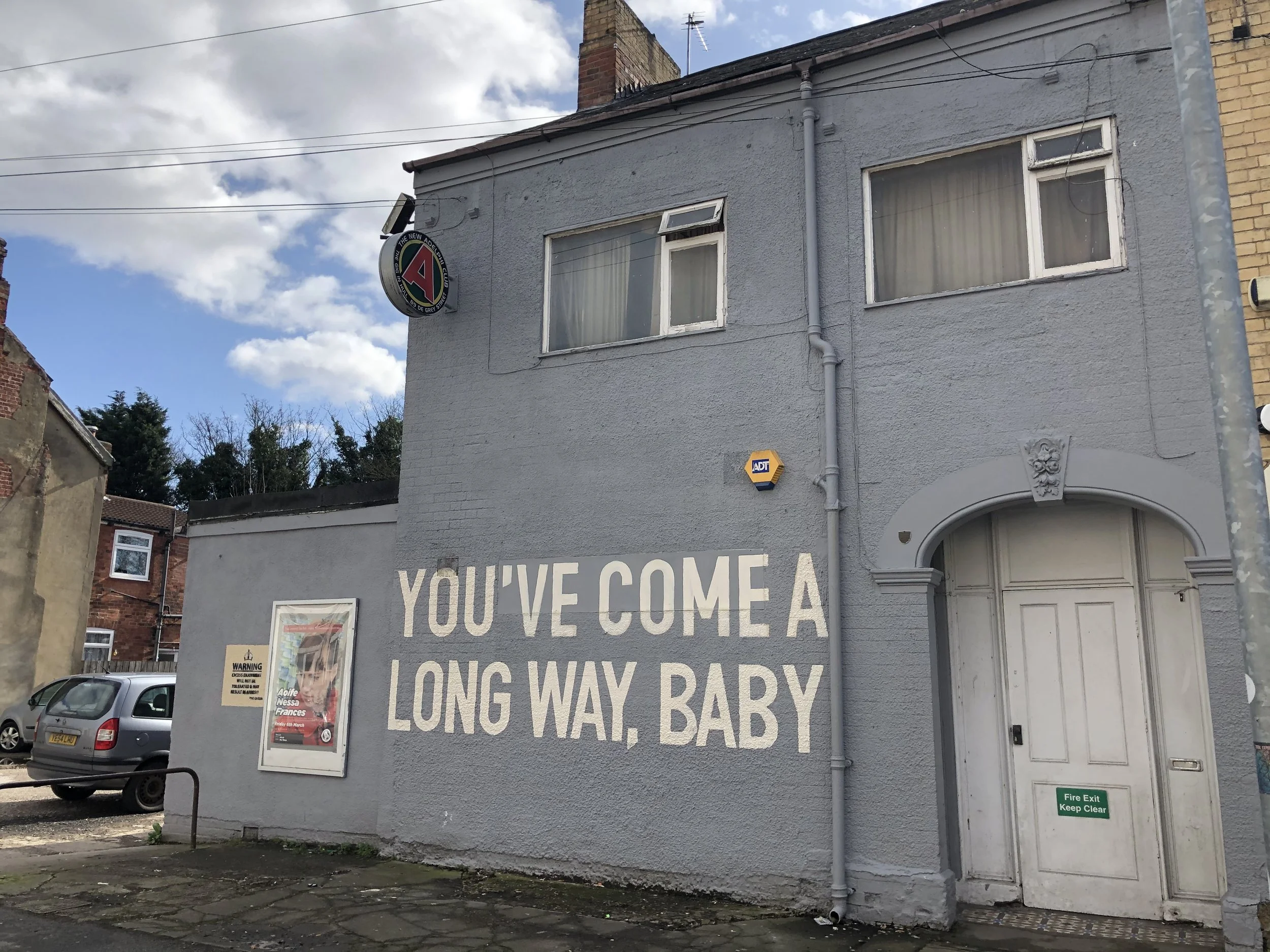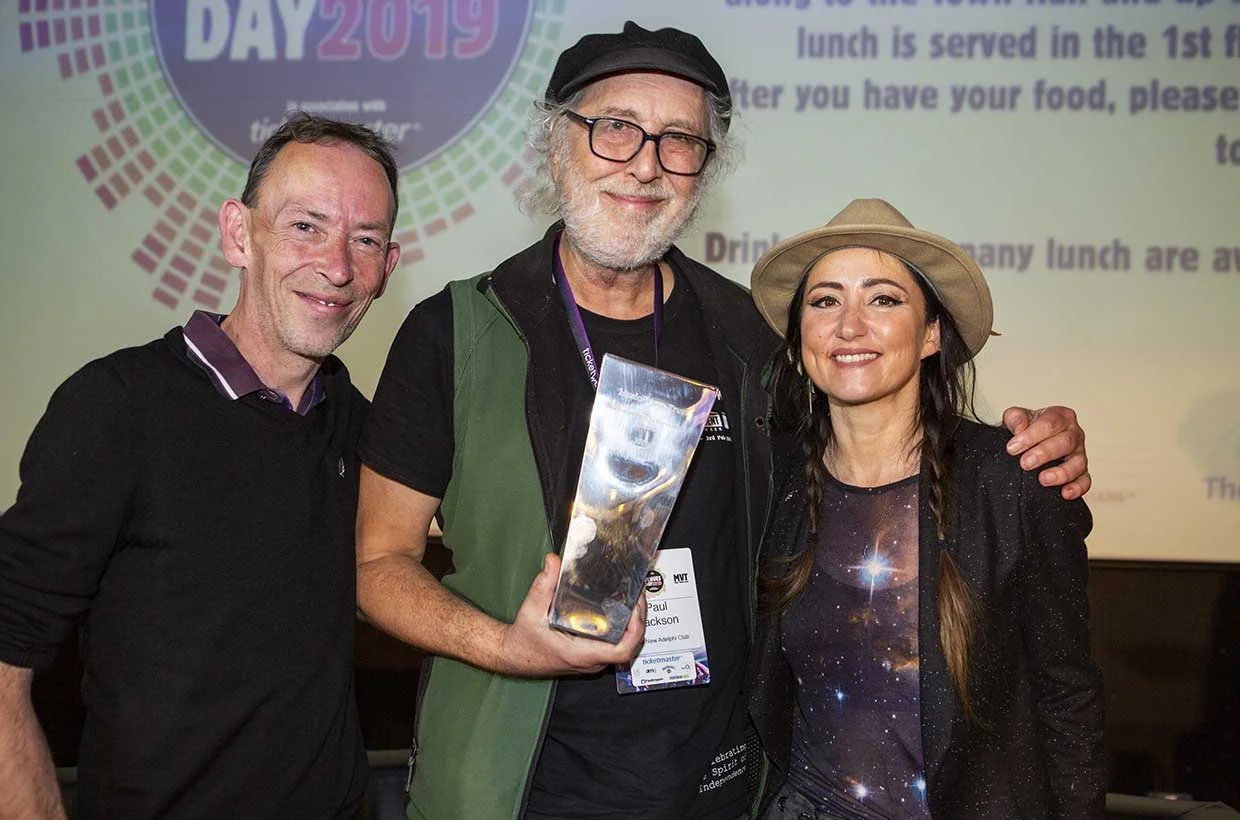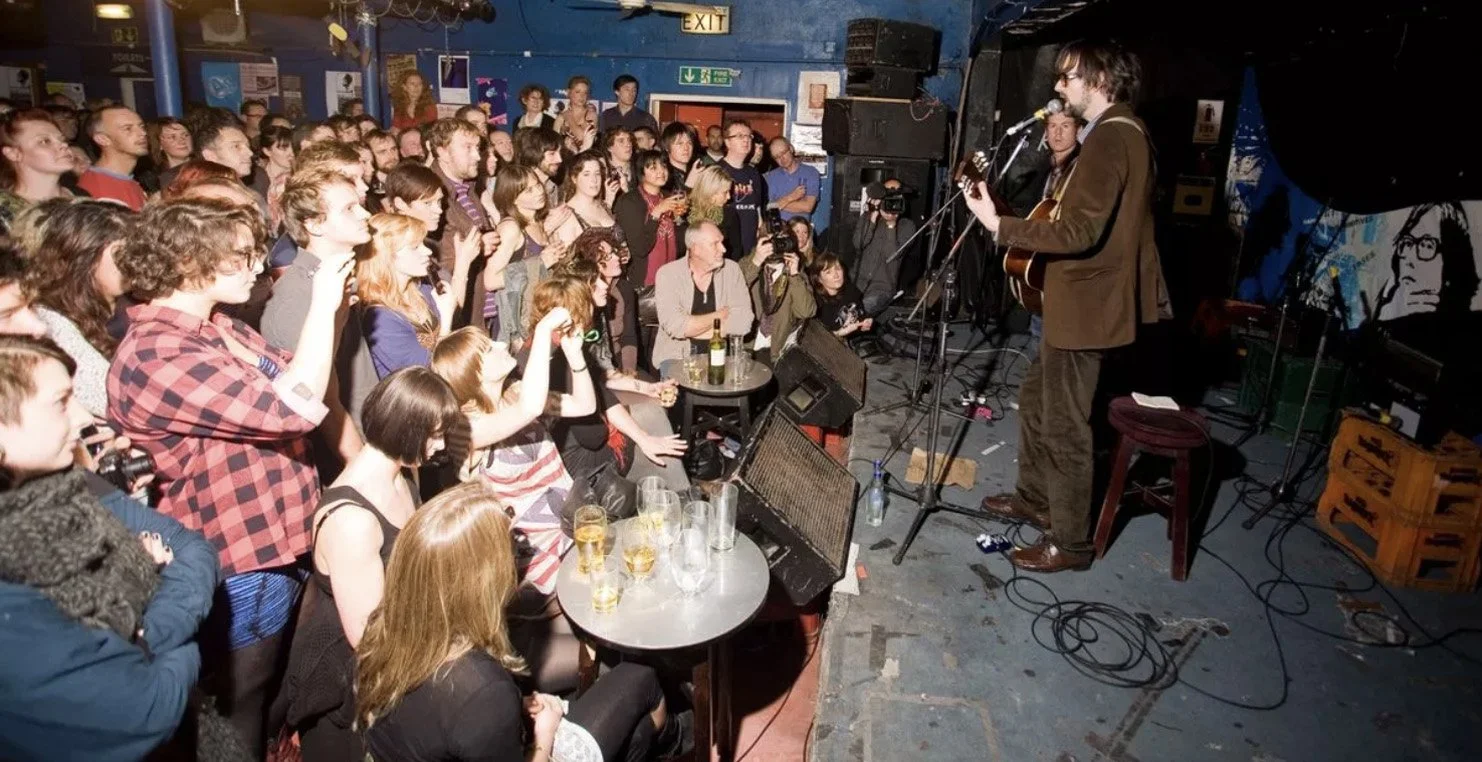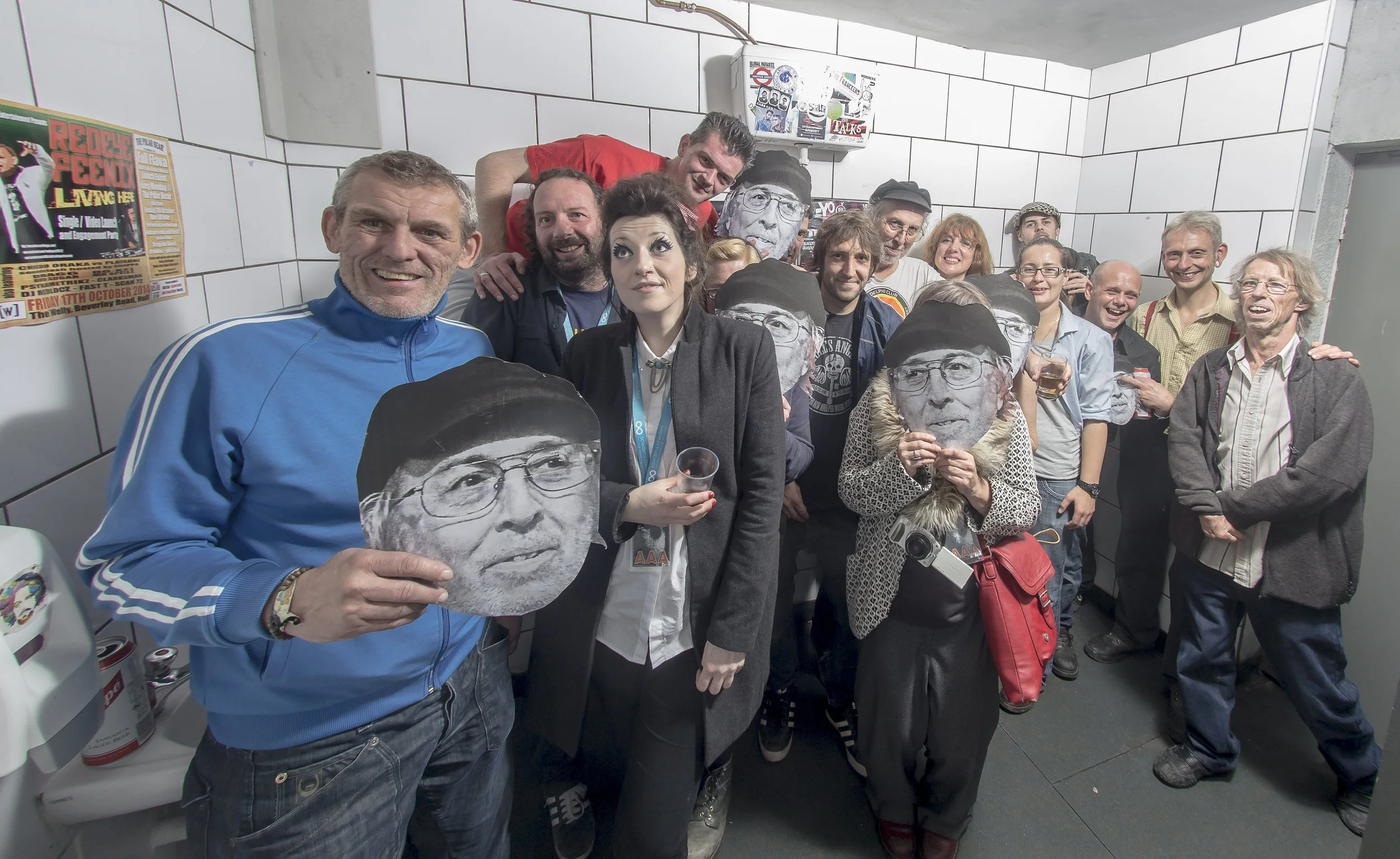‘An Adelphi gig beats a stadium gig every time’: Iconic music venue celebrates 40th anniversary
Kaiser Chiefs at The Adelphi. Picture by Ian Rook
Secret talks with music stars are under way in preparation for the 40th anniversary celebrations of Hull’s iconic music venue The New Adelphi Club. Co-Editor Simon Bristow spoke to Adelphi founder Paul Jackson
On an autumn night in 1984 at a former working men’s club in Hull, musician Guy Gibson plugged in his guitar, stepped up to the mic and played his way into the history books.
He was headlining the first ever gig at The New Adelphi Club at 89 De Grey Street – a venue with a long and varied history but one that had never hosted an event like that before.
A week later it was the turn of Cold Dance, a Gothic rock band fronted by Diane Dubois, and the week after that a new group called The Housemartins. Adelphi founder Paul Jackson had quickly proved that when it came to music he could strike gold.
“They were just the happening Hull band of the moment,” Paul told The Hull Story. “It was one of their first gigs as a four-piece. Until a few weeks previously they’d just been known as a duo, just Stan [Cullimore]and Paul [Heaton].”
Nearly forty years on The Adelphi has a well established reputation as one of the country’s leading independent music venues, a fact recognised when it was named UK Grassroots Venue of the Year at the Music Week Awards in 2022.
‘THE UNDERGROUND MUSIC CAPITAL OF HULL’: The Adelphi
It has welcomed over a million visitors and played host to more than 40,000 bands – many of whom were on their way to commercial and critical success, including Radiohead, Pulp, Oasis, Manic Street Preachers, Fatboy Slim, The Stone Roses, Echo & The Bunnymen, Happy Mondays, Primal Scream and The Idles, to name but a few.
So far, 11 bands who have played in the intimate surroundings of The Adelphi have gone on to headline the main Pyramid Stage at Glastonbury Festival, one of the biggest and most coveted gigs in the world.
These are astonishing achievements for a man who has spent nearly as much time battling to keep the venue afloat financially as he has booking bands.
So why did he do it?
“I was just a music fanatic at the time,” said Paul, who was expelled from Cottingham High School for non-attendance. He chose to continue his education in another way, attending countless gigs on the university circuit.
Paul initially explored the idea of launching a new music club with two others but eventually decided to go it alone.
He said: “It was a combination of the others getting cold feet and me not liking to share decisions three ways. I was the reckless one so I decided to do it myself and I got the cheapest place in Hull, which was The Adelphi.
“Everybody who’d ever had it had failed to make a success of it. And I never made any money out of it. Apart from the fact I came to own it. The fact that I own it will never make me wealthy because I won’t live that long and because I’d have to live with myself if I sold it to a developer, and I couldn’t do that.”
The Adelphi became a not-for-profit Community Interest Company in February 2018, with Paul Heaton and Jarvis Cocker as its patrons. Asked if that had made it more sustainable, Paul quickly replied: “The Adelphi was never sustainable.
“You know, I was dependent on the charity and generosity that came from within the Adelphi community, and also the generosity of my parents and my sister and brother-in-law – both parties put in five-figure sums to keep the Adelphi afloat over the years.”
HONOUR: Paul collecting the MVT Outstanding Achievement Award in 2019, with Steve Lamacq and KT Tunstall
These days, Paul is less involved in the running of The Adelphi and no longer lives above the club as a result of having his left leg amputated in January last year.
He has had type one diabetes for 53 years and was diagnosed with charcot foot in 2015. He also had an ulcer that needed air to heal.
Paul now thinks the amputation was “probably a mistake” and says he wasn’t briefed on the potential outcomes. But the very idea of taking legal action against the NHS is anathema to him. “I’m not going to make a claim because I don’t like that unpleasantness,” he said.
He is, however, getting “massive amounts of help” from friends, and his chances of being able to walk again, with a prosthetic leg, have improved significantly.
His influence on the venue remains huge and he is actively involved in planning the programme for the forthcoming 40th anniversary celebrations.
LOCAL LEGEND: Paul Heaton and friends at the 30th anniversary. Picture by Ian Rook
“When I started I would never have expected to be there after 40 years,” said Paul, who turns 70 in May.
Booking bands successfully over such a long period of time requires more than passion, however.
Explaining his booking policy, Paul said: “Well, there was an element of my taste – that’s inescapable and it’s still the same today, and I‘m not booking now.”
You’re not?
“Oh I‘m not allowed to, no,” Paul said. “That would be terrible – how to take the place out of business within a fortnight.
TWO OF HULL’S FINEST: The Housemartins and Paul Jackson. Picture by Anna Bean
“I think one of the things you’ve got to learn is to not let your taste, your personal taste, be too dominant.
“You’ve got to talk to people about the music they like whether you like it or not. And you’ve got to talk to them about how they respect it and criticise it and sort out the s**t from the decent stuff and all that.
“And if they talk about their music with the same reverence you have for your music then you’ve got to give them a go. And if the people who come to it are OK then you do it.”
That includes a commitment to providing opportunities to local bands, while another staple has been the ever present Musicians’ Night on Mondays, rarely a money-spinner but integral to the Adelphi ethos – anyone can get up and have a go.
Paul said: “Generally speaking we’re in opposition to free gigs because a gig has a value, that’s the principle. But Musicians’ Night, the way we’ve done it is different and yeah, it’s getting people on stage for the first time and watching them develop and that’s been a pleasure.
COMMON PEOPLE: Jarvis Cocker at the 30th anniversary. Picture by Ian Rook
“There are people who would bring it to a halt because it doesn’t make any money, but it’s still going, it’s still important. It was always sacrosanct and at times it’s been our second, third busiest night of the week.”
One unique element of Paul’s tenure, items which have achieved a fame of their own, have been the Adelphi leaflets – Paul’s hand-written gig guides, which have been as equally cherished by fans of big artists as by some of the lesser known names who appeared on them.
“There was somebody selling one for about £25, £30!” Paul said.
“I couldn’t replicate them now because I’ve got too much osteoarthritis in my fingers and it would take me a long time and they would be pretty much illegible.
“But they are a social history in themselves, and one of the ideas we’ve had was to produce a book with all the leaflets that we have, just replications of them with an absolute minimum of narrative.
‘MUSIC FANATIC’: Paul with his beloved Yosser
“I’d be quite proud to have one of those. I could probably spend hours in it because there were a lot of words on every one.”
The Adelphi community is now global, as so many people working within and outside the music industry spent their formative years there. One of the reasons it is so loved and respected has nothing to do with music.
Paul said: “I wanted The Adelphi to be a place that set standards of inclusivity in the city and I think to a certain extent I was extremely successful in that.
“I wanted it to be cosmopolitan, tolerant and inclusive in a way that probably hadn’t been seen in the city previously. And I wanted it to be a place where a woman could come alone and be treated like a human being.
“Along with lots of other stuff that I‘ve done that’s probably my greatest source of pride, really; that I’ve created a safe space, a place of good conversation, and kids who’ve come through The Adelphi have tended to do very well. There are people around the world who say they grew up in The Adelphi.”
TEAM ADELPHI: Picture by Ian Rook
It’s perhaps unfair and unrealistic to ask Paul to pick highlights after so many thousands of gigs. But the answer is it’s a moveable feast.
He said: “There have been so many highlights my one to ten would vary from day to day. Most nights have been an absolute pleasure and a privilege to have been there and been involved in the organisation.
“It’s really nice to see bands starting at The Adelphi and to see them making careers and often very decent careers after they’ve played The Adelphi. It’s always nice to think that.
“You know, Radiohead, for example, did really well. It’s nice to see that and it was a real pleasure, both to have worked with them and to have seen them at their best because people say ‘Oh, you see bands at The Adelphi on their way up and on their way down’, but on the way up is the best time to see a band, when they’re hungry.
“It’s no use going to see them when they’re all millionaires just going through the motions, playing all the hits, that’s boring. A gig in a place like The Adelphi whacks a stadium gig every time, pretty much, and we see lots of magic at The Adelphi.”
A month of special performances will be taking place around the anniversary on October 1, with advanced tickets due to go on sale in summer. This is the first in a series of articles on The Adelphi at 40 – if you have any memories you would like to share for publication email news@thehullstory.co.uk









